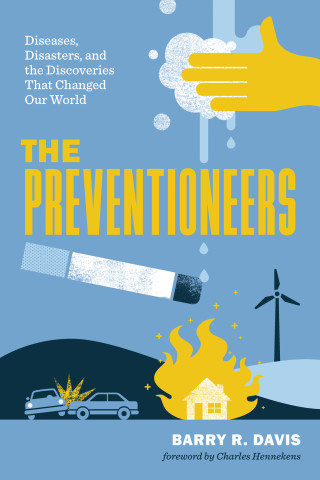
Reviews
Collecting work from an array of experts, Cohen (New York State Office of Mental Health) offers an excellent addition to the literature on mental health that examines depressive disorders from a public health and policy perspective. This book is well organized and fairly comprehensive.
A very comprehensive overview of depression, depression research, and treatment written by leading experts that includes emerging work on the social determinants of health and mindfulness.
Book Details
List of Contributors
Acknowledgments
1. The Path to the Public Health Recognition of Depressive Disorders, by Neal L. Cohen
Part I
2. Depressive Disorders, by Daniel C. Kopala-Sibley and Daniel Klein
3
List of Contributors
Acknowledgments
1. The Path to the Public Health Recognition of Depressive Disorders, by Neal L. Cohen
Part I
2. Depressive Disorders, by Daniel C. Kopala-Sibley and Daniel Klein
3. The Burden of Depressive Illness, by David A. Kessler, Evelyn J. Bromet, Peter De Jonge, Victoria Shahly, and Marsha Ann Wilcox
4. The Burden of Comorbidity, by Sergio Anguilar-Gaxiola, Daniel Vicente Vigo, and Kate M. Scott
5. Substance Use and Depressive Disorders, by Jacquelyn L. Meyers and Deborah Hasin
Part II
6. The Social Epidemiology of Socioeconomic Inequalitiesin Depression, by Helen Cerigo and Amelie Quesnel-Vallee
7. Maternal Depression and the Intergenerational Transmission of Depression, by Constance Hammen
8. The Influence of Stigma for Depression Care, by J. Konadu Fokuo and Patrick W. Corrigan
Part III
9. Youth Depression, by Jennifer L. Hughes and Joan Asarnow
10. Understanding Adolescent Suicide, by Regina Miranda, Ana Ortin, Lillian Polanco-Roman, and Jorge Valderrama
11. Interrelationship of Suicidality with Depressive Disorders and Its Implications for Suicide Prevention Strategies at the Population and Individual Levels, by Beth Han, Wilson M. Compton, and Richard McKeon
12. Mindfulness-Based Approaches for Promoting Mental Health in Urban Youth, by Tamar Mendelson and April Joy Damian
13. Mindfulness-Based Approaches for Promoting Mental Health in Urban Youth, by Amelia R. Gavin and Rebecca Rebbe
14. Racial and Ethnic Disparities in Depressive Illness and Clinical Care, by Alfiee M. Breland-Noble and Jeanne Miranda
15. Public Health Perspectives on Depression in Primary Care, by Trina Chang and Albert Yeung
16. A Twenty-First-Century Public Health Challenge and Opportunity, by Neal L. Cohen
17. The Digital Revolution and Its Potential Impact on Detection and Treatment of Depressive Disorders, by Charles Platkin, Alissa Link, and Amy Kwan
18. Preventing the Onset of Depressive Disorders, by Pim Cuijpers
Index





